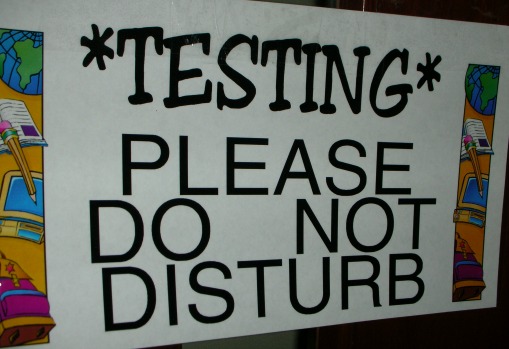|
|
Auditory Learning Styles
For Better Learning Techniques
Auditory learning styles are one of the study skills strategies that can make it easier for you to gain knowledge and understand them.
Similar with listening skills, auditory skills uses the power of sounds and how it can be utilized for effective study and retention of information. An auditory learner depends on listening and speaking.
Repeating skills with words and sounds are also used to remember and sort the information that is received through sounds.
Auditory Skills by Using Sounds Effectively
Several activities for auditory skills were developed for studying. One of these auditory learning styles is recording of class discussions and notes which can be repeated several times using a recording device instead of just reading your notes.
This technique can be supported by studying and reading your notes and assignments with a loud voice. Meditation can also be practiced to remember the things you have heard and studied by whispering to yourself silently about what has been discussed and explained.
Your mind will begin to think more deeply about the topics you have encountered which makes you understand them more.
Using daily affirmations can help you improve your self esteem, making you more capable of absorbing knowledge through words and sounds. It is also important for personality development to be active in class or group discussion.
Boldness and eagerness to learn can be very helpful and participating in class discussions is one of the activities for auditory skills you can do for you to learn better. You should not be afraid to ask questions and request to repeat some past discussions. You should admit that you’re not perfect but you’re doing your best to learn.
With Guidance and Support
Teachers can instruct students on activities for auditory skills by facilitating:
- Group discussions – Making students talk about and brainstorm on topics that were discussed so they can share opinions verbally and compare their understanding and what they know.
- Verbal Direction – Auditory learning styles can be developed by giving step by step procedure about doing something like how to cook special easy recipes, finding the bookstore and doing icebreaker games for groups.
- Modifying information – Another way of improving auditory skills is by modifying words into rhythmic patterns such as songs and poems. This may also become easy to remember.
- Verbal reinforcement – This is a way of giving "proper praise" to someone who deserves it. Activities for auditory skills like this create a positive mood for the person involved which can also be considered an icebreaker.
- Group Activities – Encouraging and obliging a group of people to do tasks in teamwork and cooperation helps them to discuss, collaborate and share their skills with each other. These activities for auditory skills to promote better communication.
Not Just the Words You Hear
Similar to listening skills, auditory learning styles should not be limited to interpreting the words you hear. It should include the other aspects or "dimension" of the words being spoken.
You should learn to understand the tone of someone’s speech. It may present a deeper meaning of the words and the mood of the person. The accent of speech should also be considered.
You should avoid having any bias with any person who has a different accent than yours because it may lead to changing some of the meaning of her/his words. Consideration of language is very important.
You and someone may know how to speak Mandarin aside from English for example, but you may be in a better mood or favor for anyone who speaks in English if it’s your primary language.
Keeping an "open mind" and the willingness to understand the speaker will make your listening and auditory skills more accurate and reliable. It is in our minds where ideas get created so the way you gain information and the way you think including your attitude are much involved with the way you hear and learn things.
Observation can be a support to your auditory learning styles because actions by other people can also be interpreted along with what they say. It can show you the reliability or honesty of their words through the way they express it.
This includes overall such as voice, tone and accent combining with facial expression, hand gestures and body movements.
The Edge of Auditory Training
People who practice auditory learning styles may become more sensitive to sounds and words around them. They can have a sharper hearing compared to others and may become more quick in making proper reaction and decisions which is a great advantage.
As mentioned earlier if you have auditory learning skills you may have the talent to understand or "catch" the true meaning of someone’s words by listening to audible signals such as changes in tone.
If you have auditory skills, you are most likely to be good at writing responses to the lectures you have heard. You’ll also be better at oral exams and interviews from lectures, oral sessions and speeches.
Even people who talk fast can be understood better or when there are a lot of people speaking at the same time like in a crowd.
Auditory learners may also be good at storytelling. They may also have the ability to solve problems by discussing them through with others because of their improved "reception" and verbal skills.
Refining Auditory Learning Styles
"Auditory learners" are usually people who learn better through hearing instead of other methods of instruction. They are most compatible with sound learning because it’s more effective for them.
Even if you’re not an auditory learner, the activities for auditory skills can be used which can improve your learning.
Here are several techniques which can develop your auditory skills:
1. "Self talking" is a good activity for auditory skills because you hear what you say at the same time you can practice your speech.
2. Study with your friend so you can both discuss things and hear the information itself.
3. Volunteer to your teacher to give you oral presentations instead of simply written so you can train the way you relay information to others.
4. Suggest on becoming a leader for the group when needed. This would exercise your responsibilities and communication skills with your members. Your "soft skills" will be developed as well as you hear and respond to other people.
5. Make your own recorded tapes about your notes and important things to remember. You can play them repeatedly which can make you remember things more.
6. Watch movies and TV shows. Try to capture every detail in dialogue or words being spoken.
Further techniques for improving auditory skills:
7. You can also listen to the radio more often where you’ll only depend on hearing without visual pictures.
8. Have an interest in panel discussions and debates. This can improve your hearing analysis of things that are being contrasted and compared with each other.
9. Volunteer to instruct others on what needs to be explained. You can act as a teacher or instructor for a group of people.
10. You can sing simple songs or rhythms which you like when you have the opportunity.
11. You may demonstrate things and give step by step procedure to other people when you have the chance.
12. When reading, try to "verbalize" the words and phrases. You can repeat the important parts so you can remember them.
These are some of the auditory learning styles you can use which are effective for learning.
Different Learning Styles
You may have encountered visual learning styles which is one of the techniques which can be used for better learning. This uses the power of vision through illustrations and diagrams.
If you or anyone has learning disabilities, auditory learning styles and visual learning styles can give great support when working out with studying and improving. Even anyone who is normal would benefit much with the use of these specialized techniques.
Another one of the learning styles is kinesthetic learning which is a way of learning by doing physical activities rather than listening to a lecture or watching demonstrations and pictures.
So as you can see there are different learning styles which can be practiced according to your needs. You can choose the styles you can use which will make your learning much easier saving you time and trouble.
Auditory learning styles are beneficial techniques for those who want to improve their learning abilities. Auditory learners use these activities for auditory skills because it’s more compatible for them to learn this way compared to other methods. However, these auditory learning styles are available to anyone and can be used to your advantage accordingly.
Go from Auditory Learning Styles to Effective Time Management Techniques













